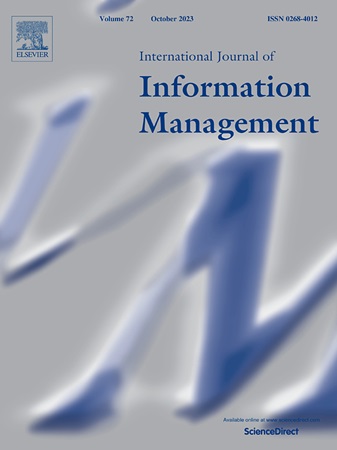人工智能在营销中的未来导航:人工智能跨国界整合、伦理考虑和政策影响
IF 27
1区 管理学
Q1 INFORMATION SCIENCE & LIBRARY SCIENCE
International Journal of Information Management
Pub Date : 2025-01-23
DOI:10.1016/j.ijinfomgt.2025.102871
引用次数: 0
摘要
现代技术的卓越计算能力,加上它们通过分析丰富数据集提供见解的能力,正在帮助公司提高各个领域的绩效。因此,企业越来越多地部署人工智能(AI)来同步、重塑和重组其资源,以实现业务目标,并在营销工作中提高客户参与度。人工智能通过向本地和国际客户提供个性化体验来促进营销策略。然而,人工智能领域的快速创新和缺乏全面的监管框架令人担忧。这些差距使得公司难以确保其人工智能应用程序符合要求并保护利益相关者的利益。因此,过渡到人工智能领域对那些旨在保持道德和负责任形象的公司来说是有风险的。为了减轻这些风险,将负责任的人工智能使用纳入公司政策可以作为公司关键的第一步。本文章由计算机程序翻译,如有差异,请以英文原文为准。
Navigating the future of AI in marketing: AI integration across borders, ethical considerations, and policy implications
The superior computing power of modern technologies, combined with their ability to provide insights through analytics on rich data sets, is helping companies enhance performance across all areas. Consequently, companies are increasingly deploying Artificial Intelligence (AI) to synchronise, reshape, and restructure their resources to achieve business objectives and enhance customer engagement in marketing efforts. AI facilitates marketing strategies by delivering personalised experiences to both local and international customers. However, the rapid pace of innovation in AI and the absence of comprehensive regulatory frameworks pose concerns. These gaps make it challenging for companies to ensure that their AI applications are compliant and safeguard stakeholder interests. Therefore, transitioning into the AI domain carries risks for companies aiming to maintain an ethical and responsible image. To mitigate these risks, integrating responsible AI usage into corporate policies can serve as a critical first step for companies.
求助全文
通过发布文献求助,成功后即可免费获取论文全文。
去求助
来源期刊

International Journal of Information Management
INFORMATION SCIENCE & LIBRARY SCIENCE-
CiteScore
53.10
自引率
6.20%
发文量
111
审稿时长
24 days
期刊介绍:
The International Journal of Information Management (IJIM) is a distinguished, international, and peer-reviewed journal dedicated to providing its readers with top-notch analysis and discussions within the evolving field of information management. Key features of the journal include:
Comprehensive Coverage:
IJIM keeps readers informed with major papers, reports, and reviews.
Topical Relevance:
The journal remains current and relevant through Viewpoint articles and regular features like Research Notes, Case Studies, and a Reviews section, ensuring readers are updated on contemporary issues.
Focus on Quality:
IJIM prioritizes high-quality papers that address contemporary issues in information management.
 求助内容:
求助内容: 应助结果提醒方式:
应助结果提醒方式:


